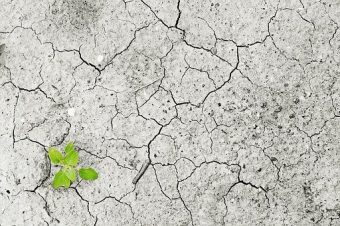
As much of Europe bakes in a third heatwave since June, fears are growing that extreme drought driven by climate change in the continent’s breadbasket nations will dent stable crop yields and deepen the cost-of-living crisis.
The European Commission on Wednesday (3 August) urged EU member states to re-use treated urban wastewater as irrigation on the continent’s parched farms after France and parts of England saw their driest July on record.
In France, where an intense drought has hammered farmers and prompted widespread limits on freshwater use, there were just 9.7 millimetres (0.38 inches) of rain last month, Meteo France said.
That was 84 per cent down on the average levels seen for July between 1991 and 2022, making it the driest month since March 1961, the agency added.
Farmers nationwide are reporting difficulties in feeding livestock because of parched grasslands, while irrigation has been banned in large areas of the northwest and southeast due to freshwater shortages.
More:
Environment Minister Christophe Bechu said July’s rainfall represented “just 12 per cent of what’s needed”.
France is the fourth-largest wheat exporter and among the top five exporters of maize globally. Poor harvests due to drought may heap further pressure on grain supplies after war in Ukraine caused global shockwaves.
“Our food system has been under stress for a while, and with the supply issues from Ukraine, that has only gotten worse,” said Shouro Dasgupta, an environmental economist at the Euro-Mediterranean Center on Climate Change.
“These heatwaves are on top of droughts and will see crops wither faster.”
Dasgupta said that extreme heat driven by climate change contributes to food price inflation for consumers and harsher conditions for producers.
“Droughts and heatwaves impact people’s livelihoods. People will be less able to afford food,” he told AFP.
“And during heatwaves, outdoor workers are only able to work fewer hours, which brings cascading impacts for supply.”
Source: EURACTIV.com



